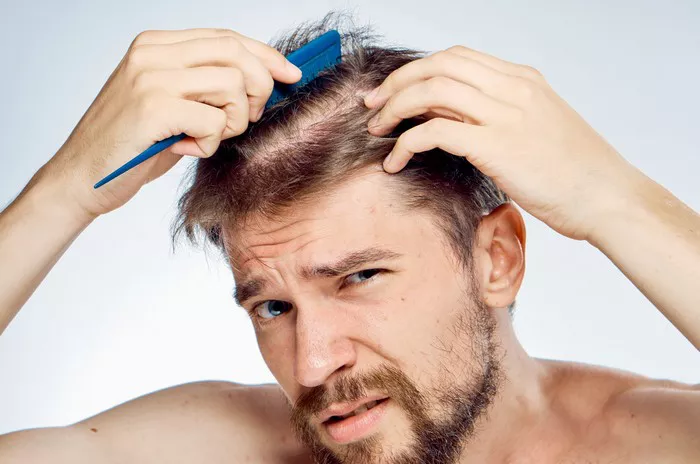Hair, often considered a symbol of beauty and vitality, holds a significant place in human aesthetics. However, maintaining healthy hair goes beyond mere cosmetic concerns; it reflects one’s overall health and well-being. Adequate nutrition plays a pivotal role in promoting hair growth and preventing hair loss. In this article, we delve into the essential nutrients required for optimal hair health, exploring their roles and dietary sources.
1. Protein: The Building Block of Hair
Protein serves as the primary structural component of hair, constituting approximately 90% of its composition. The hair follicles require an adequate supply of protein for growth and repair. Insufficient protein intake can lead to weak, brittle hair and even hair loss. Incorporating protein-rich foods such as lean meats, poultry, fish, eggs, dairy products, legumes, nuts, and seeds into your diet can help promote healthy hair growth.
2. B Vitamins: Vital for Hair Health
B vitamins, particularly biotin (B7), niacin (B3), and pantothenic acid (B5), are essential for maintaining healthy hair follicles. Biotin, in particular, is renowned for its role in promoting hair growth and preventing hair thinning. It aids in the production of keratin, a protein essential for hair strength and elasticity. Sources of B vitamins include whole grains, meat, fish, eggs, nuts, seeds, and leafy green vegetables.
3. Vitamin C: A Powerful Antioxidant for Hair
Vitamin C plays a crucial role in collagen synthesis, a protein that supports hair structure and growth. Additionally, it acts as a potent antioxidant, protecting hair follicles from oxidative stress caused by free radicals. Citrus fruits, berries, kiwi, bell peppers, and leafy greens are excellent sources of vitamin C that can contribute to healthy hair growth.
4. Vitamin E: Nourishing Hair from Within
Vitamin E is known for its antioxidant properties, which help reduce oxidative stress and promote hair growth. It improves blood circulation to the scalp, ensuring that hair follicles receive an adequate supply of nutrients and oxygen. Incorporating foods rich in vitamin E, such as nuts, seeds, avocado, and leafy greens, can support healthy hair growth and scalp health.
5. Iron: Essential for Oxygen Transport
Iron plays a crucial role in transporting oxygen to the hair follicles, promoting their growth and vitality. Iron deficiency, often characterized by anemia, can lead to hair loss and dull, lifeless hair. Including iron-rich foods such as red meat, poultry, fish, lentils, beans, spinach, and fortified cereals in your diet can help maintain optimal iron levels for healthy hair.
6. Zinc: Supporting Hair Growth and Repair
Zinc is an essential mineral involved in various cellular processes, including DNA synthesis and repair. It plays a vital role in hair tissue growth and repair, ensuring the proper functioning of hair follicles. Zinc deficiency has been linked to hair loss and scalp conditions such as dandruff. Foods rich in zinc include oysters, red meat, poultry, beans, nuts, and whole grains.
7. Omega-3 Fatty Acids: Nourishing the Scalp
Omega-3 fatty acids are renowned for their anti-inflammatory properties and their ability to nourish the scalp and hair follicles. They help maintain scalp health, reduce inflammation, and promote hair growth. Fatty fish such as salmon, mackerel, and sardines, as well as flaxseeds, chia seeds, and walnuts, are excellent sources of omega-3 fatty acids.
8. Vitamin A: Balancing Sebum Production
Vitamin A plays a crucial role in the production of sebum, the natural oil that moisturizes the scalp and keeps hair healthy. However, excessive intake of vitamin A can have the opposite effect, leading to hair loss. It’s essential to maintain a balanced intake of vitamin A through foods such as sweet potatoes, carrots, spinach, kale, and liver.
9. Selenium: Protecting Against Oxidative Stress
Selenium is a trace mineral with antioxidant properties that help protect hair follicles from oxidative stress. It also plays a role in thyroid hormone metabolism, which can influence hair growth and quality. Including selenium-rich foods such as Brazil nuts, seafood, whole grains, and eggs in your diet can support healthy hair growth.
10. Silica: Strengthening Hair Structure
Silica is a trace mineral involved in the formation of collagen and elastin, proteins that support hair strength and elasticity. It contributes to the overall health of hair strands, making them less prone to breakage. Foods rich in silica include oats, barley, rice, leafy greens, and bananas.
Conclusion:
In conclusion, maintaining optimal hair health requires a balanced diet rich in essential nutrients. Protein, B vitamins, vitamin C, vitamin E, iron, zinc, omega-3 fatty acids, vitamin A, selenium, and silica all play vital roles in promoting healthy hair growth and preventing hair loss. By incorporating a variety of nutrient-dense foods into your diet, you can provide your hair follicles with the nourishment they need to thrive. Additionally, maintaining good overall health through regular exercise, adequate hydration, and stress management can further support optimal hair growth and vitality.


